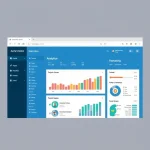Understanding Competitive Intelligence
What is Competitive Intelligence?
Competitive intelligence (CI) is the systematic gathering and analysis of information about competitors, market trends, and the overall business environment. It is a critical strategic business practice that provides organizations with insights necessary to gain a competitive advantage. By evaluating both the strengths and weaknesses of competitors, as well as identifying opportunities and threats in the market, companies can make informed decisions that enhance their market positioning.
In today’s fast-paced business landscape, information is power. Companies utilize competitive intelligence to understand their rivals better, choose effective marketing strategies, and innovate their products or services. As such, engaging a reliable competitive intelligence company can mean the difference between outpacing competitors and falling behind.
Types of Competitive Intelligence
Competitive intelligence can be categorized into several types, allowing organizations to approach their data collection and analysis systematically. Here are the primary types:
- Product Intelligence: This involves analyzing competitors’ products or services in terms of features, benefits, pricing, and customer experience. Understanding product positioning helps businesses to innovate and differentiate their offerings.
- Market Intelligence: This encompasses broader market insights, including market size, growth potential, and emerging trends. Utilizing market intelligence allows businesses to identify niches and opportunities for expansion.
- Customer Intelligence: Gathering data about competitors’ customers, such as their preferences, behaviors, and purchasing patterns, helps companies tailor their strategies to meet customer needs.
- Strategic Intelligence: This type focuses on analyzing competitors’ overall strategies, including their marketing campaigns, sales tactics, and operational strengths or weaknesses.
The Importance of Market Insights
Market insights derived from competitive intelligence play a crucial role in guiding strategic decision-making. In a world where consumer preferences evolve and competition stiffens, staying informed about market shifts is vital for sustaining business growth. Companies that leverage market insights can:
- Respond swiftly to changes in consumer demand or competitor actions.
- Enhance product development processes by incorporating user feedback and market trends into their designs.
- Optimize pricing strategies based on competitor pricing and consumer willingness to pay.
- Identify potential partnerships or acquisitions that align with their growth objectives.
Key Benefits of Competitive Intelligence Services
Enhancing Strategic Decision-Making
The most significant advantage of engaging a competitive intelligence company is improved strategic decision-making. Access to detailed market and competitive data allows leaders to:
- Make data-driven choices rather than relying on gut feelings or assumptions.
- Reduce exposure to risks by anticipating competitive moves and market disruptions.
- Align business objectives with market realities, ensuring that strategies remain relevant.
Identifying Market Opportunities
Successful businesses continuously seek growth opportunities. Competitive intelligence helps organizations to:
- Spot emerging trends early and adapt their strategies to capitalize on them.
- Identify unmet customer needs that competitors may not address, allowing for the launch of innovative products.
- Search for potential markets or regions for expansion based on competitive shortcomings.
Mitigating Risks from Competitors
Understanding competitors’ strategies, strengths, and weaknesses can help companies minimize risks. Competitive intelligence allows businesses to:
- Develop action plans to counteract competitor threats.
- Reassess their market positioning and refine their value proposition accordingly.
- Prepare financial forecasts and resource allocations based on competitive movements.
How to Choose the Right Competitive Intelligence Company
Evaluating Service Offerings
Selecting a suitable competitive intelligence company is crucial for acquiring relevant insights. Prospective clients should evaluate service offerings based on:
- The range of intelligence services offered, such as market analysis, competitor profiling, and consumer insights.
- The methodologies and tools employed to gather and analyze data, ensuring they adhere to ethical standards.
- The flexibility to customize reports and insights to align with specific business needs and goals.
Understanding Client Needs and Goals
A reputable competitive intelligence company should take the time to understand the unique goals and challenges of its clients. This involves:
- Conducting preliminary consultations to assess required intelligence levels.
- Identifying key performance indicators (KPIs) that matter most to the client’s success.
- Engaging in discussions around timelines, budget constraints, and expected outcomes.
Analyzing Case Studies and Success Stories
Before committing to a competitive intelligence provider, businesses should analyze previous case studies or success stories. This can provide insights into how similar companies benefited from the services, including:
- The type of insights derived from the intelligence gathered.
- Specific strategies developed in response to those insights.
- Quantifiable results achieved, such as revenue growth or market share gain.
Implementing Competitive Intelligence in Your Business
Steps to Integrate CI Practices
Integrating competitive intelligence practices into a company’s operations requires a well-thought-out approach. Here are essential steps to facilitate this process:
- Define Objectives: Establish what you hope to achieve through competitive intelligence, whether it’s enhanced decision-making, improved market position, or increased sales.
- Gather Data: Collect both primary data (via surveys, interviews, etc.) and secondary data (from public reports, news articles, etc.) relevant to your objectives.
- Analyze Information: Use analytical tools to derive insights from the data collected, identifying key themes, trends, and competitive dynamics.
- Disseminate Findings: Share findings with stakeholders throughout the organization, ensuring everyone understands the implications for their roles.
- Continuously Monitor: CI is not a one-time effort; continuously assessing market and competitive dynamics is crucial for staying ahead.
Tools and Technologies for Effective CI
Numerous tools and technologies are available to assist businesses in gathering and analyzing competitive intelligence. These tools can help streamline the CI process by:
- Automating data collection and analysis.
- Providing dashboards for easy visualization of insights.
- Facilitating collaboration between cross-functional teams for enhanced data sharing.
Popular CI tools include platforms like Crayon, which helps monitor competitors’ moves in real-time, and Klue, which allows seamless sharing of competitive insights across an organization.
Measuring Competitive Intelligence Impact
After implementing CI practices, it’s essential to assess their effectiveness. Businesses can measure CI impact by tracking:
- Changes in market share following the implementation of new strategies based on CI insights.
- Increased customer satisfaction due to better-aligned products and services with market needs.
- The return on investment (ROI) from CI initiatives, analyzing costs incurred versus financial benefits achieved.
Future Trends in Competitive Intelligence
Leveraging AI and Data Analytics
As technology advances, the role of Artificial Intelligence (AI) and data analytics in competitive intelligence is evolving. AI can enhance CI efforts by:
- Providing predictive analytics to forecast market trends and consumer behaviors.
- Automating data collection processes, making it possible to refine intelligence workflows significantly.
- Delivering personalized insights based on specific business parameters and customer preferences.
Emerging Best Practices
As competitive intelligence continues to evolve, new best practices are emerging, including:
- Promoting cross-departmental collaboration to ensure intelligence insights are shared across all functional areas.
- Utilizing real-time data monitoring to stay ahead of competitors quickly.
- Focusing on ethical data gathering practices to maintain brand integrity and avoid potential legal issues.
The Evolving Role of Competitive Intelligence in Business Strategy
Competitive intelligence is becoming increasingly integral to business strategy formulation. Organizations are recognizing that CI is not merely about gathering data but about using it to:
- Drive innovation through informed product development and service enhancements.
- Shape marketing strategies that resonate better with target audiences.
- Facilitate quicker and more effective responses to market changes.
As such, the ongoing integration of competitive intelligence within organizational strategy signals a shift towards more agile, informed, and responsive business practices that can adapt to an ever-changing marketplace.








